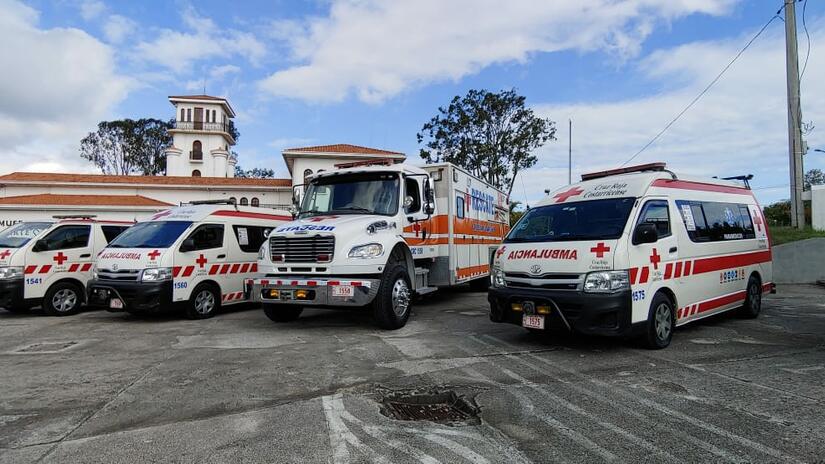Diego Gómez is 38 years old, he is an emergency medical technician, and for nine years he has been working as a paramedic in the Metropolitan Committee of the Costa Rican Red Cross, in the Canton of San José, the capital city of the country. Every day he carries out his duties with an Advanced Support Unit. Together with a driver he transfers patients to the hospital, many of them with symptoms compatible with COVID-19. According to Diego, things have changed a lot since the pandemic began.
“Normally we treat emergency medical cases, but with the onset of the pandemic, calls related to the virus increased a lot… there was very little information, and the health system quickly became saturated. We realized that there were many scared people thinking that they had contracted the coronavirus and many felt very lonely and anguished without knowing what to do.”
The service in which Diego works consists of four ambulances and as soon as the urgent care notice arrives, protocol are set in motion to try and determine if the person who is going to be treated could be infected with the virus. The family or the patient reports on their symptoms and checks are done to see if they have had close contact with people with coronavirus. When the team arrives at the patient's home and the suspicion of possible contagion is confirmed, their transfer to the nearest available medical center is organized.
“Many of the patients we serve are older adults with other health conditions, such as obesity or diabetes. The hardest thing is that they have to travel alone in the ambulance and many older people have to say goodbye to their family, because they cannot be accompanied in the context of the pandemic... it is a hard time for them and for us too".
Diego also tells us that he and three of his colleagues had to quarantine for 15 days, due to contact with a patient who had to be treated in the ambulance for cardiac arrest, and it turned out to be COVID-19 positive.
According to Diego, during the days of isolation his feeling was one of frustration, and then one of vulnerability, "for the first time I saw myself on the side of the sick and that affected me a lot, I had to accept that it is part of the work we do. Now we have new protocols, and all the cases we attend are treated as suspects, until proven otherwise, that is why we use protective filter masks, a surgical gown, protective glasses, etc. I live with my mother who is older, and I always try to respect security measures ... even if we have to keep physical distance with our elders, that does not mean that we have to keep emotional distance. It is always possible to show affection over the phone, or exchange virtual hugs over video calls”, he concludes.
The Costa Rican Red Cross has been working on the frontline of this health emergency, so far more than 8000 cases of confirmed or suspected COVID-19 patients have been transferred and more than 41000 incidents have been carried out for the same cause. Campaigns have also been carried out in communities promoting the implementation of protection measures.

